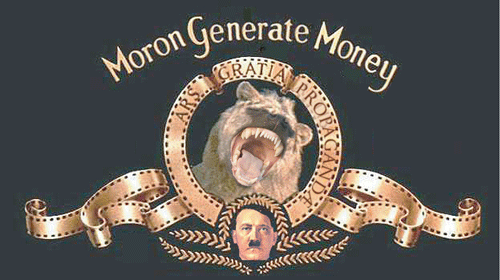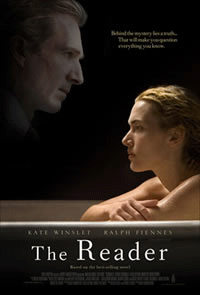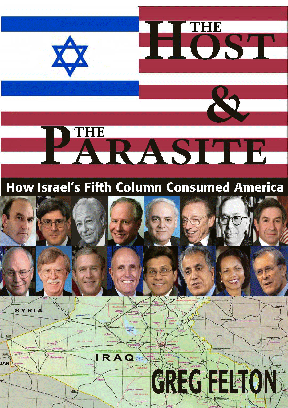The Academy Awards ceremony bears little resemblance to the relatively modest affair that began it all on May 16, 1929, in the Hollywood Roosevelt Hotel . Then, a mere nine categories were honoured. Now, scores of awards are given out in categories unthinkable at a time before “talkies” and colour film.Most of these new categories are in what might be called “movie science,” areas like special effects, animation and computer graphics. The other side of movie-making, the artistic side, has understandably suffered as a result; the more money that gets blown on artificial acting, the less money there is to invest in real acting, and that includes intelligent, meaningful scripts.
Small wonder, then, that the vast majority of new movies falling off the Hollywood assembly line are bastardizations of great movies, simple-minded sex farces, torture/revenge spectacles, and pointless comic book fantasies, but let’s leave that trenchant observation for another day.
I am using this column to ask the Academy of Motion Picture Arts and Sciences to create a new Oscar category to honour an overlooked genre, one that actually thrives in our intellectually stunted culture. I am, of course, referring to the holocaust. Thus far, the academy has lumped holocaust and holocaust-themed movies in with others of a given genre—drama, comedy, romantic comedy, thriller, documentary, war epic, etc.—but this practice does a disservice to all films.
For example, a “normal movie” can be enjoyed for its own sake and evaluated solely on its artistic merits. They can be pure escapist entertainment; others also convey important political or moral truths. Besides being a superb action movie, The Matrix is a masterful parable of the fundamental question of Cartesian philosophy—“does reality exist, or is it merely an illusion in the mind of a superior being?” Enemy of the State (1998) is a timely warning that nobody is safe from harassment and terrorism from the U.S. police state.
Like these and other movies, a holocaust movie is larger than the sum of its cinematic parts, but instead of conveying a political or moral truth, it conveys a political or moral illusion. As such, it is manipulative, not instructive, and therefore a work of propaganda, not honest movie-making.
First of all. the holocaust genre is artistically and morally exhausted. Everything that could be said about the Nazi persecution of Jews from a zionist perspective has been said ad nauseam. More than 180 films on the subject have been made in the U.S., almost all since the end of the 1967 war, yet studios still pump them out as if World War II ended yesterday.
 |
Rather than allow this didactic dishonesty to debase the Oscars further, all Nazi holocaust and holocaust-related movies must be designated as propaganda and disqualified from movie award categories. Instead, a new category, the Leni Riefenstahl Awards, should be created to give these films the respect they deserve.
 |
Riefenstahl’s subsequent film, on the 1936 Berlin Olympics, was also highly praised: 1937, Gold Medal (Paris); 1938, World’s Best Film (Venice); 1939, The Olympic Award (International Olympic Committee); 1956, classified as one of the world’s 10 best films.
After the war, Triumph des Willens was (rightly) denounced as a work of propaganda and Riefenstahl’s reputation never recovered. My point is that even propaganda can be good art. In that spirit, I nominate The Reader for the inaugural Leni Riefenstahl Award for Excellence in Propaganda.
| The Reader Summary, from imdb.com Hanna is enthralled as Michael reads to her from The Odyssey, Huck Finn and The Lady with the Little Dog. Despite their intense bond, Hanna mysteriously disappears one day and Michael is left confused and heartbroken. Eight years later, while Michael is a law student observing the Nazi war crime trials, he is stunned to find Hanna back in his life—this time as a defendant in the courtroom. As Hanna's past is revealed, Michael uncovers a deep secret that will impact both of their lives. The Reader is a story about truth and reconciliation, about how one generation comes to terms with the crimes of another. |  | ||
| Director: Stephen Daldry Writers (WGA): Lead Actors: Oscar Nominations 5 Another 7 wins and 19 nominations |
To begin, author Bernhard Schlink wanted to examine what it means to love someone who committed an atrocity. He could have set his tragic love affair against any moral crisis he wanted, but his choice of the war crimes trial of five female Nazi prison guards places both his novel and the movie in the category of zionist propaganda. The great propaganda moment comes near the end when the crime in question is revealed at the trial. Two points are of particular note.
Law vs. Morality
Based on their written account of the event, the women are charged with failing to open the locked door of a building during a fire, thereby causing the death of 300 women and children prisoners trapped inside—all save one woman and her daughter.
A law professor, who brought five students to see the trial, explains that what the women did was legal according to the law at the time. Student Michael Berg rejects this sanguine attitude: “You keep telling us to think like lawyers but they are guilty... What is there to understand?”
Berg is meant to represent the voice of humanity and righteous indignation. For him, what the women did was a crime because they were morally responsible for the lives of the prisoners and they failed in their responsibility. Legalistic tap-dancing around what was or was not acceptable cannot make the crime any less punishable. For this scene—and the film itself— to have integrity, the position of moral righteousness must remain constant. It doesn’t.
Because The Reader came out during Israel’s bombardment of Gaza one month ago the entire trial is rendered banal. The professor is absolutely correct: there is nothing surprising or condemnatory about what the women did because the same corrupt morality that made it legally acceptable then is again acceptable now.
During the bombardment of Gaza, Israel forced 110 Palestinians, half of them children, to take shelter in a house in Zeitun, a suburb of Gaza City. The next day Israel deliberately bombarded the house for 34 hours, killing 30 and wounding 18. The youngest victim was five months old. There is no trial scheduled to try these war criminals.
In fact, the Jews who committed the Zeitun atrocity were greater criminals. The guards did not actually attack the house. Theirs was a crime of omission; Israel’s is a crime of commission.
The only reason to make this movie, much less write the book, is to breathe life into Hitler's ghost so we don't notice the living Hitlers in Israel. The guards in The Reader were not put on trial for allowing innocent people to die; they were tried for allowing Jews to die. The effect is to propagandize the Jew-as-victim myth and make the audience believe that it’s a political reality.
Collective Guilt
The second propaganda point is the common theme of all Germans sharing responsibility for the holocaust. One of the law students says of Hanna Schmitz, one of the guards: “I’d shoot her myself; I’d shoot them all.”
In contrast, fellow student Michael Berg is downcast throughout the trial because Hanna is his former lover, and he knows she is innocent because she is illiterate. She could not have written the incriminating report as the other defendants claimed.
Against the lies of the other guards, though, Hanna would not defend herself for fear of admitting her handicap. Berg, who could have saved Hanna, did not speak up because he feared his classmates' contempt, and he wanted to distance himself from the crime.
The audience is shown both bloodlust and cowardice, yet they are supposed to identify with the professor’s detached, rational respect for the law: “If people like you don’t learn from people like me, then what the hell is the point of anything?” Indeed, what is the point”
The idea that justice for these Nazi guards should be fair and rational is hard to take seriously given that Jews in Israel are visiting a collective punishment, a holocaust, on Palestinians, and many Jews are sabotaging attempts to bring the criminals to justice. Moreover, if one accepts that Israel is a law unto itself and commits collective punishment as a matter of national policy, could the professor’s rational detachment be invoked in the defence of any Israeli war criminals that might face trial?
Regardless of how much attention one pays to the relationship between Michael and Hanna, the holocaust is the focus. Without it, there would be no book or movie. The holocaust defines for all time our moral frame of reference: the past is real; the present is an illusion; Jews are eternal victims.
The legalistic culture and the oppressor/victim relationship described in The Reader are antiquated, so the decision to use them, in preference to meaningful, real-life examples, renders the book and movie preposterous, manipulative, and dishonest.
For the abovementioned reasons and the high quality of the movie’s production, The Reader would be a worthy recipient of the inaugural Leni Riefenstahl Award for Excellence in Propaganda.
|
| The Host and The Parasite— How Israel's Fifth Column Consumed America is a detailed study of how Israel exploited the U.S. economy, government and military to destroy the American republic. In North America, Greg Felton |  |